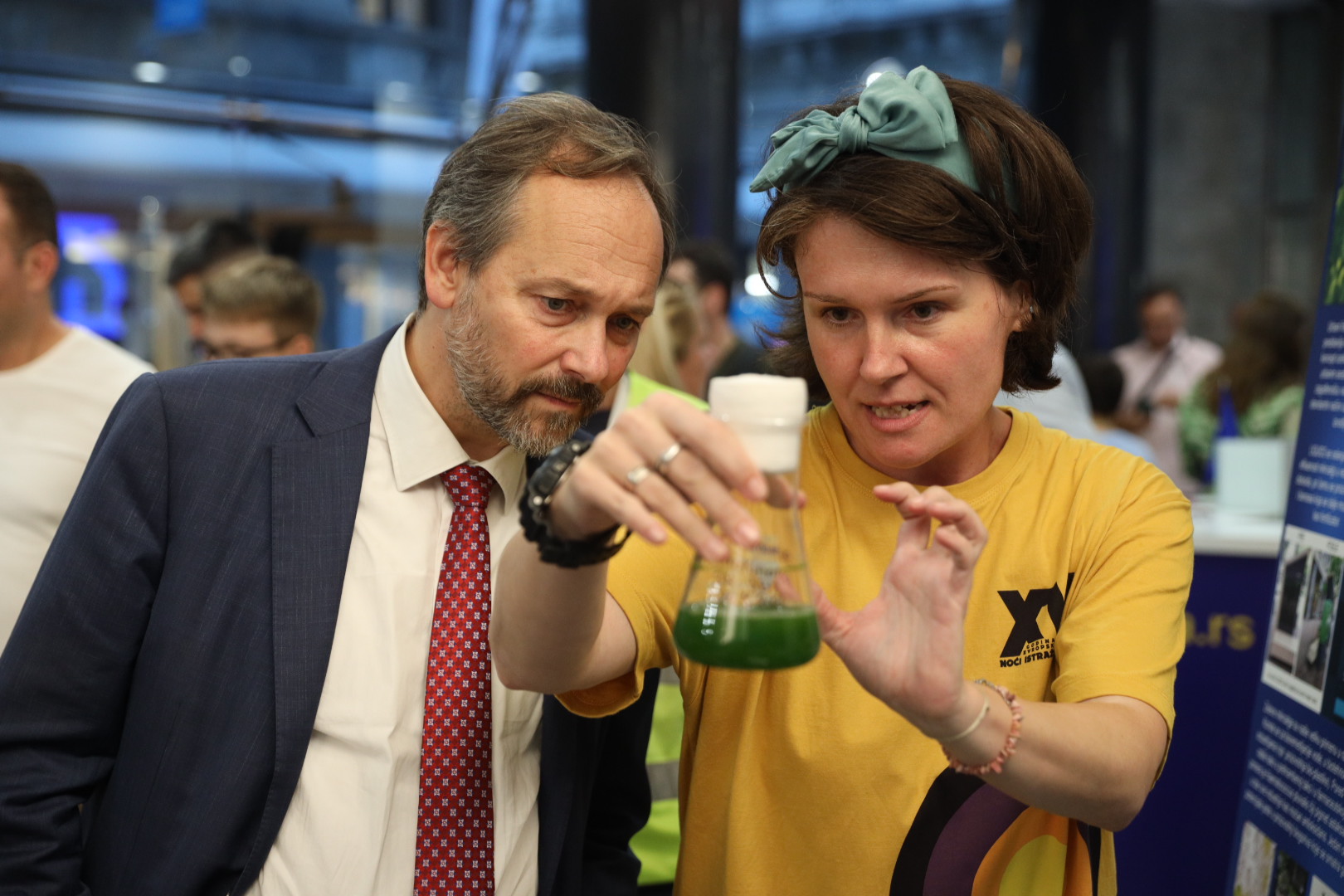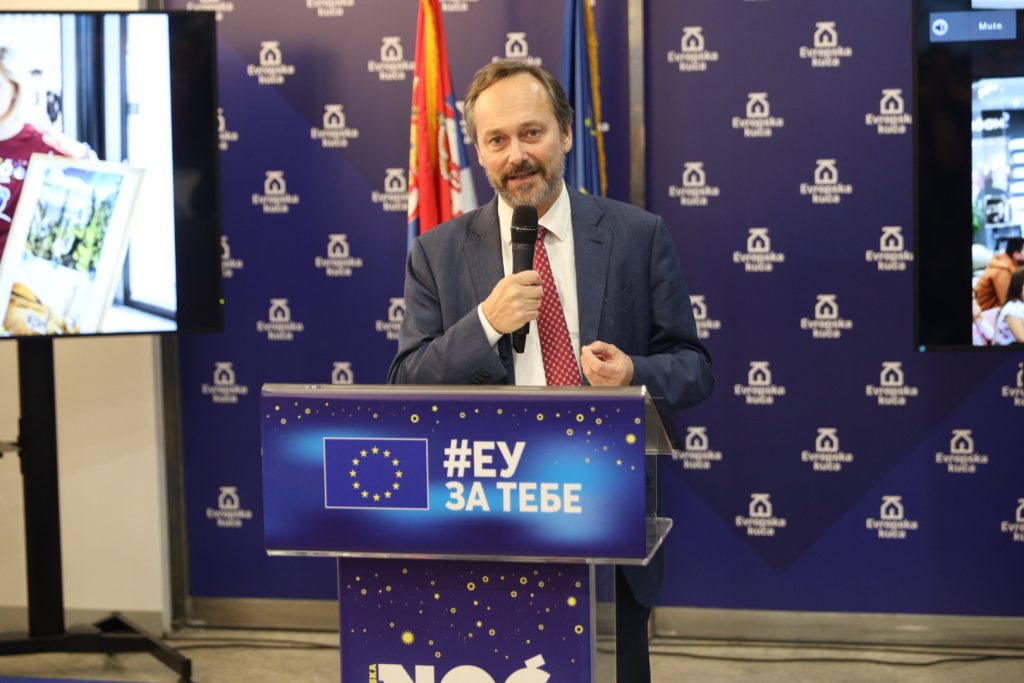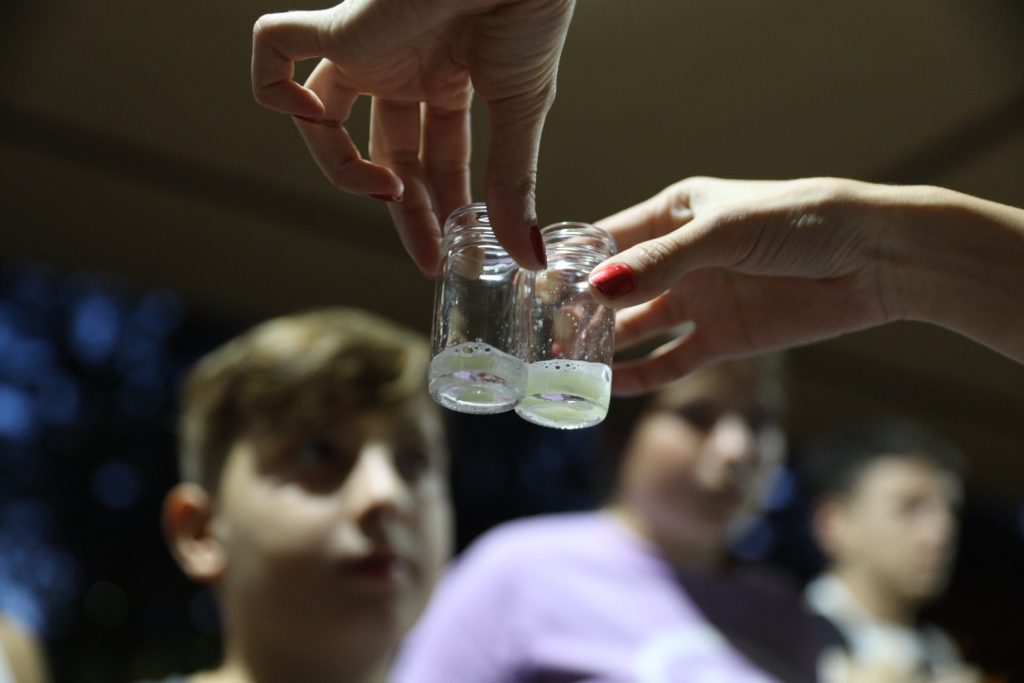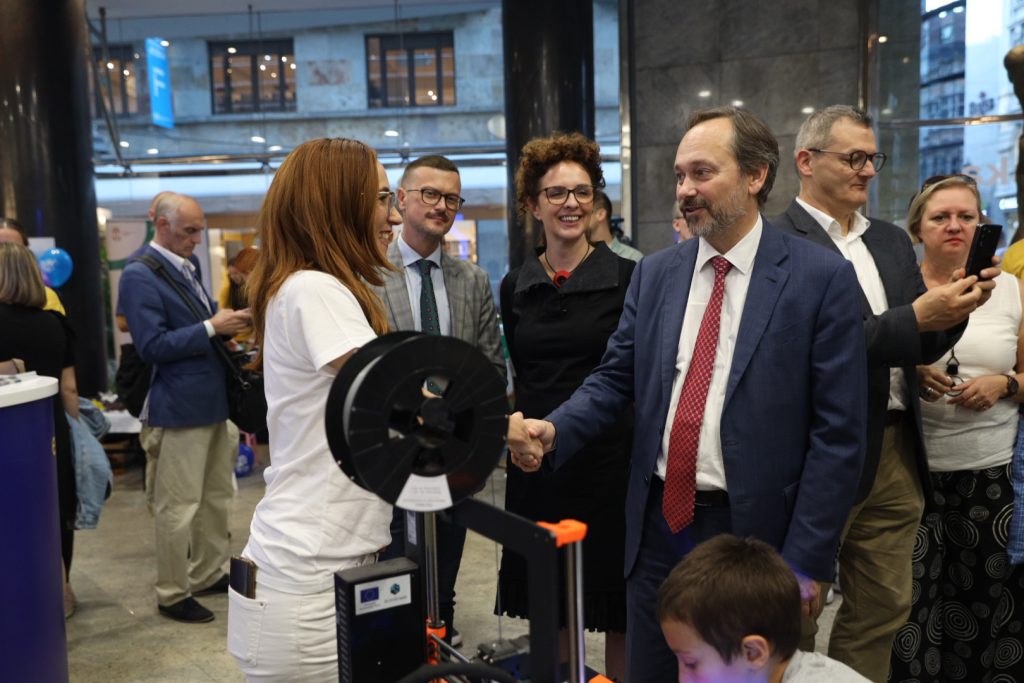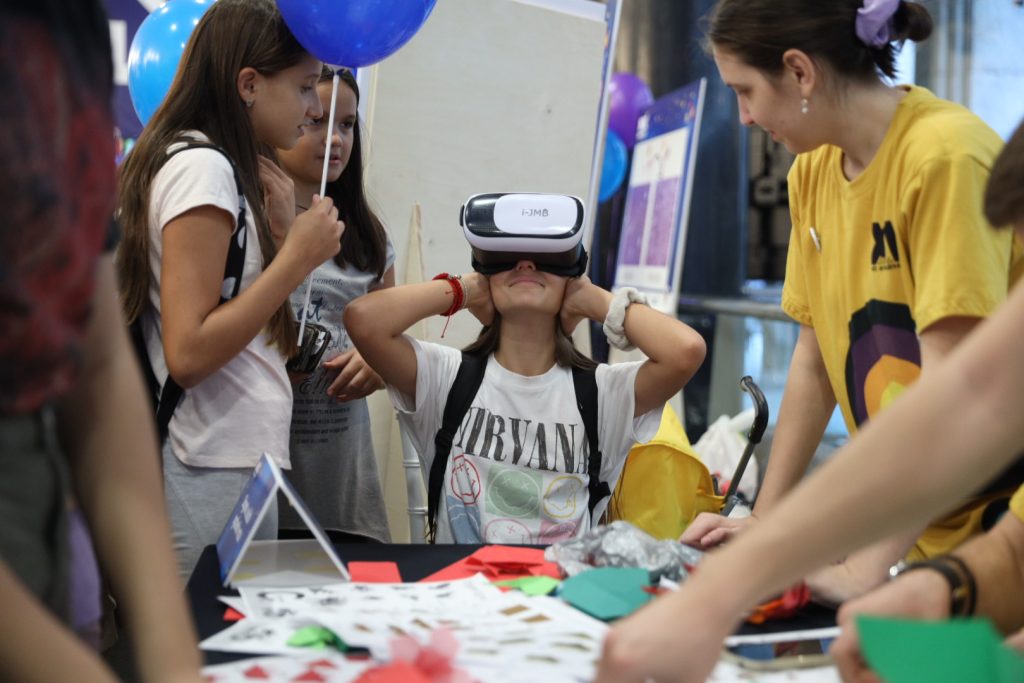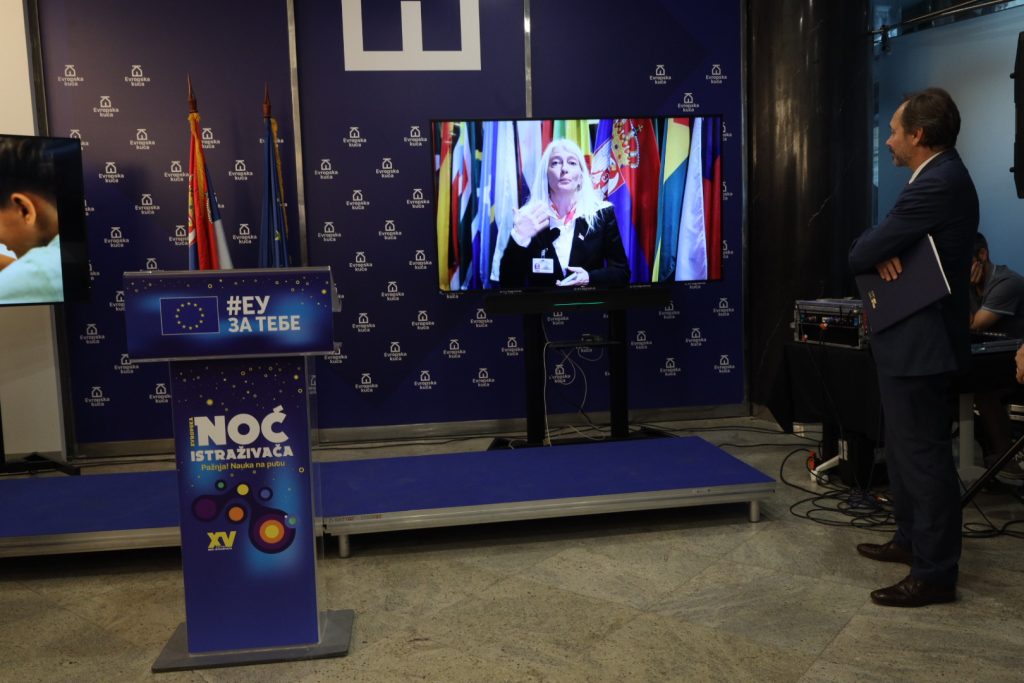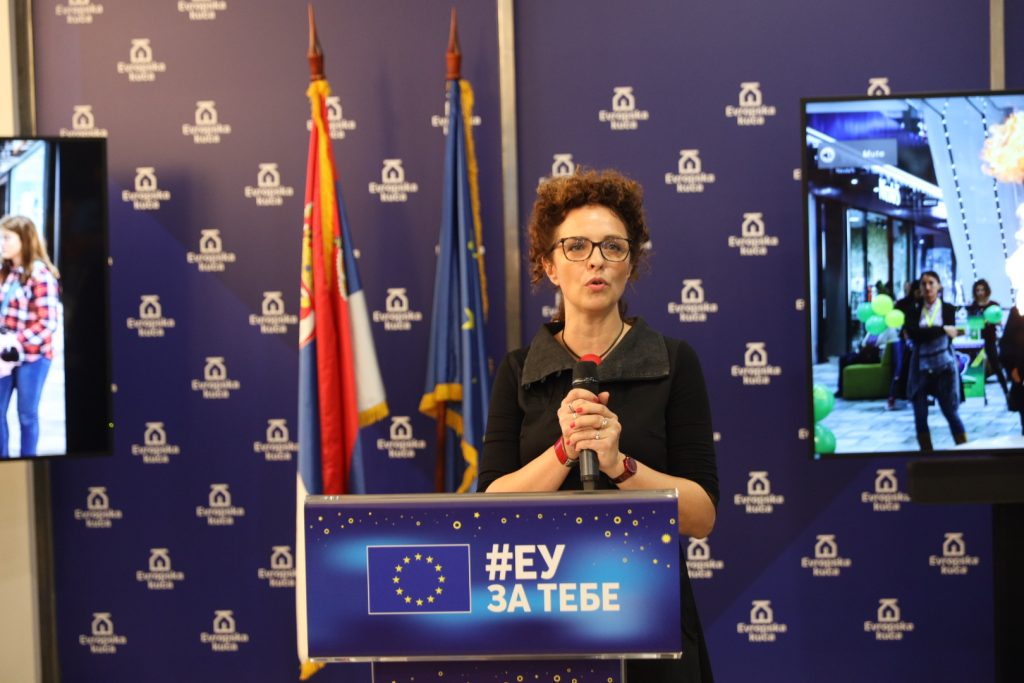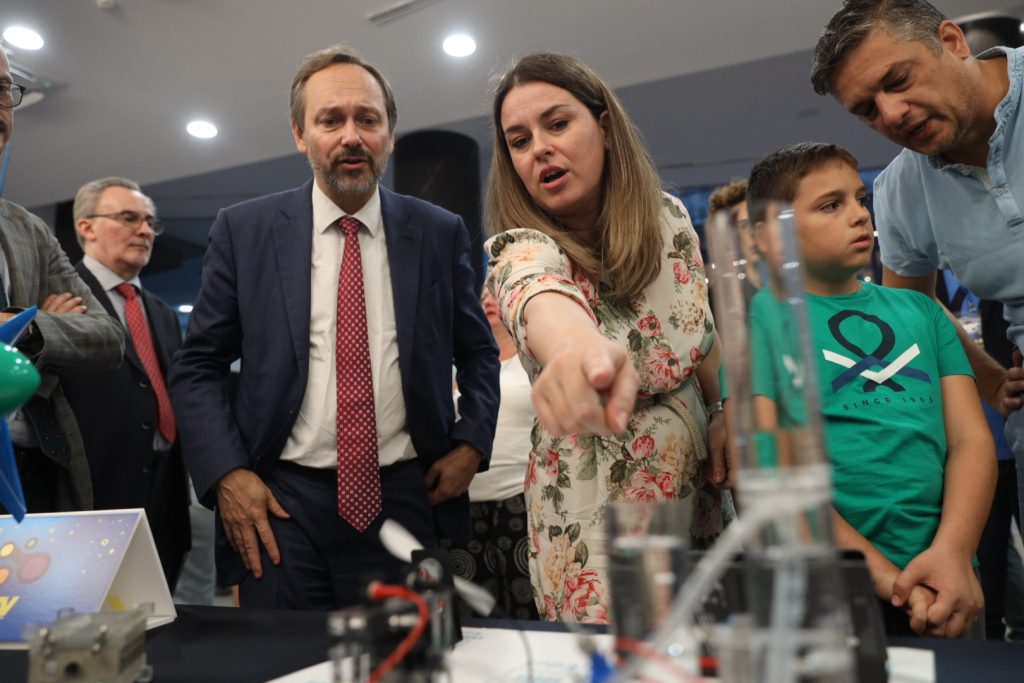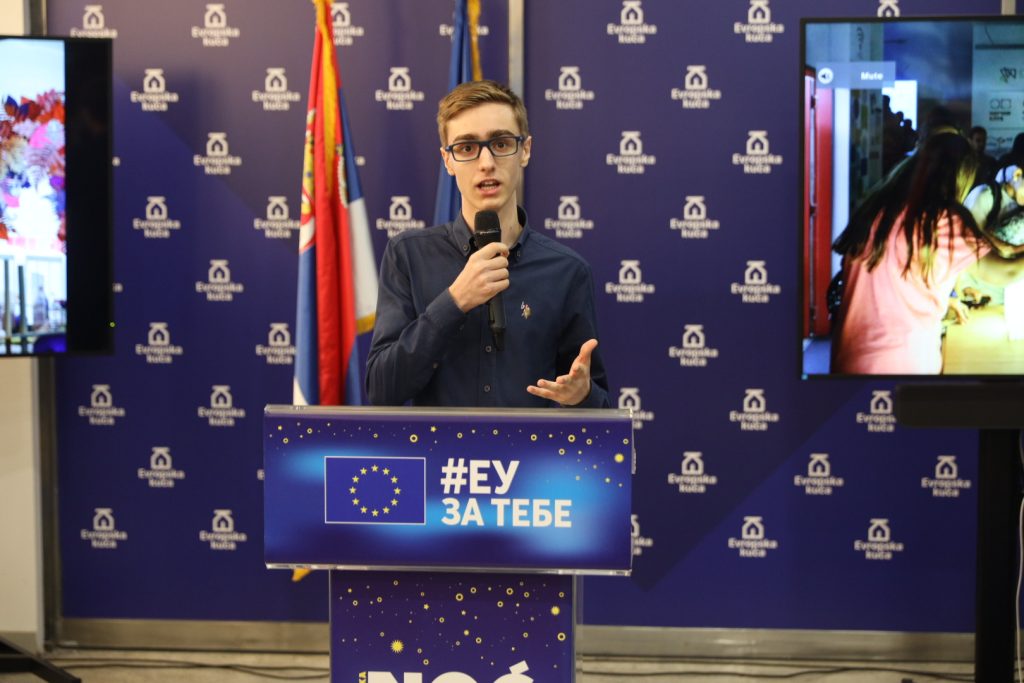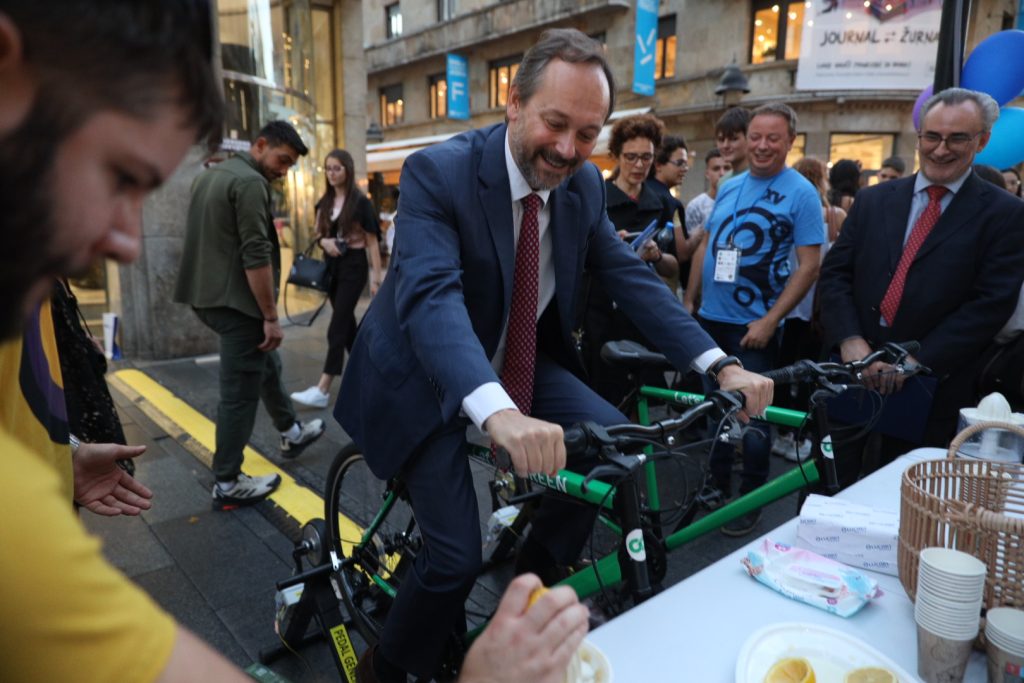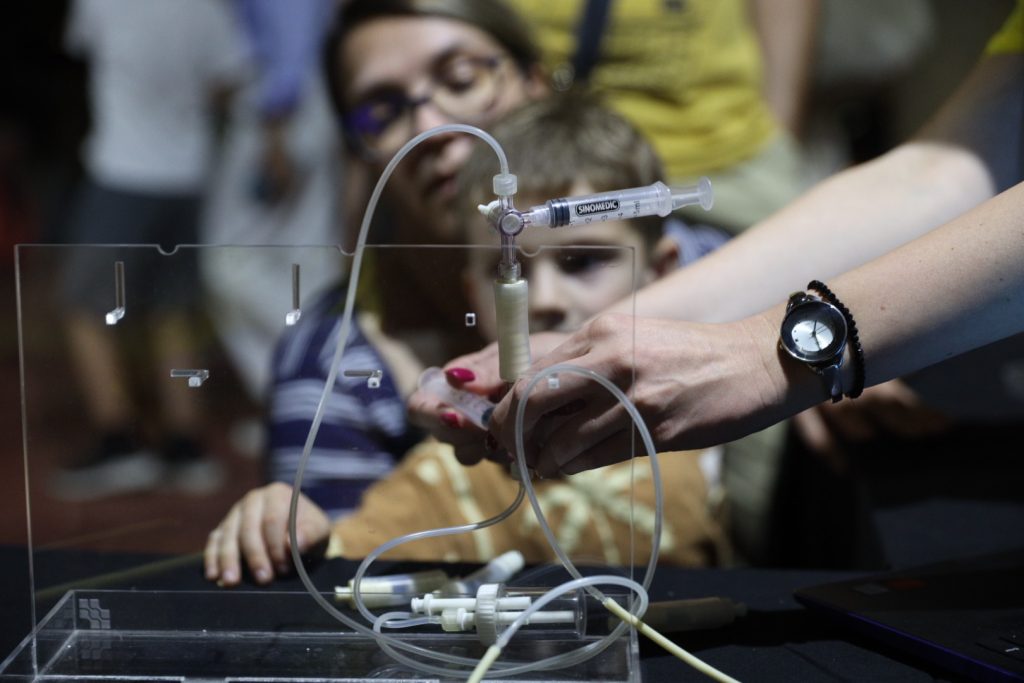The European Researchers’ Night in Serbia was officially opened with a ceremonial event at the Europe House Belgrade on 27 September. This 15th annual event of its kind in Serbia was supported by the Ambassador of the European Union to Serbia, Emanuele Giaufret, and the Minister of Science, Dr. Jelena Begović who addressed the audience with a video message.
During the ceremony at the Europe House in Belgrade, Dr. Jasmina Nestorović Živković, coordinator of the European Researchers’ Night ReFocus FLOW project, and Andreja Drobnjaković, a student from the Mathematical Gymnasium in Belgrade who won five gold medals at the International Science Olympiad StemCo in Singapore, also addressed the audience.
Ambassador Giaufret stated:
“Science and Innovation are not only there to stimulate our curiosity, but also to support the competitiveness of the national economy and beyond, the society as a whole, aiming for a better future as part of the European Union. The European Union is glad that funds spent in science, research and innovation are not seen as an expenditure but an investment in the future of the national economy and well-being of their citizens. With the 15th European Researcher’s Night in Serbia we take science a bit more out of the laboratory and bring it to the people to wonder at its accomplishments, inspire careers and maybe future scientists and discoveries.
The Minister of Science, Dr. Jelena Begović, in a video message from the United Nations, emphasized that this event aims to promote science and bring science closer to citizens.
“Science in the future will indeed be key to providing solutions, through innovation, knowledge, new scientific discoveries, to help us face global challenges. We need many more scientists, we need many more smart people, more startups that come out of science, so that we can really face the big problems in the future, which are affecting all of humanity, and – after all – every individual on this planet” , said Dr. Begović.
She said that the content of this manifestation includes new technologies, as well as artificial intelligence. The minister concluded that the European Researchers’ Night is a good way for scientists to show the youngest citizens, but also the oldest, the benefits of science, and how much we all use science every day.
According to Dr. Nestorović Živković, science is not just a profession: it is a passion, an insatiable curiosity, and a desire to make the world a better place, and the European Researchers’ Night is an opportunity for the audience to connect with people who share that same passion. “Tonight, knowledge is not just accessible – it’s alive,” she says.
“Throughout all these years, we have been guided by well-known facts: science is the foundation of modern society. It not only pushes the boundaries of our understanding of the world but also forms the basis for technological advancement, which leads to innovation and the overall development of society. Science helps us mitigate the impact of human activities on the environment and develop strategies to combat climate change and preserve biodiversity. Ultimately, progress in medicine would be unimaginable without scientific achievements,” said Dr. Nestorović Živković, mentioning that more than 1,000 researchers are participating in this year’s European Researchers’ Night in Serbia through over 200 workshops.
Andreja Drobnjaković, a multiple award-winning student of the Mathematical Gymnasium, confirmed that such events are crucial for popularizing science and bringing it closer to young people.
“The thirst for knowledge is what makes us human. Since the discovery of fire and humankind’s life in caves, people have always asked themselves questions because they wanted to learn something new, something that could make life easier. That curiosity is what has led humans, from the moment they were at the mercy of nature, to work with it. We must not think we are smarter than nature because no matter what theory we come up with, we cannot perfectly describe our world. And that’s why we must never lose our desire for knowledge, the desire to uncover secrets that are still hidden from us,” said Drobnjaković.
Held across Europe, including Serbia
Simultaneously, scientific workshops, interactive activities, and presentations are being held in 15 other cities across the country, aimed at all generations, especially schoolchildren. European Researchers’ Night in Serbia is carried out through two projects: ReFocus FLOW (Road to Friday of Science FLOWs) and TRAILS (TRAIN RESPONSIBLE AI LEARNING SOCIETY).
Also, European Researchers’ Night is held across Europe on the last Friday of September under the patronage of the European Commission. This year, it will be present in 23 countries, in over 400 cities. The aim of this event is to raise public awareness about the importance and positive role of science in society by placing researchers at the center of the public’s attention. The activities are suitable for all ages, no prior knowledge is required, and all events are open and free for participants.

